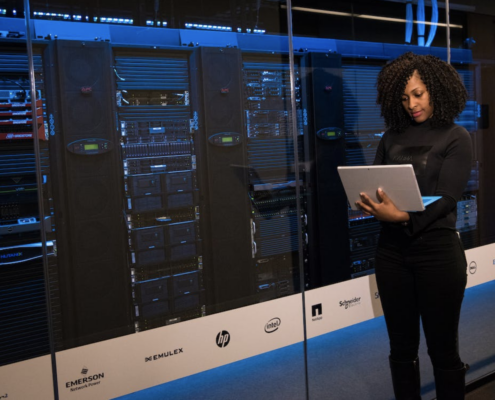 https://www.teamipro.com/wp-content/uploads/2024/02/Screenshot-2024-02-28-at-1.07.41-AM.png
1038
1550
Pat Anunciacion
https://www.teamipro.com/wp-content/uploads/2023/07/IPRO.png
Pat Anunciacion2023-08-29 06:00:302024-07-05 05:25:31Cybersecurity in the Cloud Era: The Critical Role of Managed IT Services
https://www.teamipro.com/wp-content/uploads/2024/02/Screenshot-2024-02-28-at-1.07.41-AM.png
1038
1550
Pat Anunciacion
https://www.teamipro.com/wp-content/uploads/2023/07/IPRO.png
Pat Anunciacion2023-08-29 06:00:302024-07-05 05:25:31Cybersecurity in the Cloud Era: The Critical Role of Managed IT ServicesExploring VoIP and Its Importance in Business Continuity for Dallas
In this blog, we’re diving into a technology that has revolutionized the way businesses communicate: VoIP, or Voice over Internet Protocol. If you’ve ever wondered how VoIP works, what benefits it offers, and its role in unified communications, you’re in the right place. Understanding VoIP is crucial for ensuring robust business continuity in Dallas, especially as more businesses shift towards flexible and remote work environments.
Introduction to VoIP
VoIP stands for Voice over Internet Protocol. Simply put, it’s a technology that allows you to make voice calls using a broadband internet connection instead of a regular (or analog) phone line. VoIP converts your voice into a digital signal that travels over the internet. If you are calling a regular phone number, the signal is converted back at the other end.
How VoIP Works
The way VoIP works is both fascinating and straightforward. Here’s a basic breakdown:
Key Points:
- Digital Conversion: VoIP converts voice signals into digital data packets.
- Transmission: These data packets are sent over the internet to the recipient.
- Conversion Back: The data packets are converted back into voice signals at the destination.
- Connection Types: VoIP can be used with a dedicated VoIP phone, a computer, or a traditional phone connected to a VoIP adapter.
By leveraging the internet, VoIP bypasses the limitations of traditional phone lines, offering more flexibility and efficiency.
Benefits of VoIP
VoIP offers numerous benefits that make it an attractive option for businesses, especially when considering business continuity in Dallas. Let’s explore some of the key advantages:
1. Cost Savings
One of the most significant benefits of VoIP is the potential for substantial cost savings. Traditional phone services often come with high costs, particularly for long-distance and international calls. VoIP, on the other hand, uses the internet to transmit calls, which can significantly reduce these expenses.
Key Points:
- Lower Call Costs: Particularly for long-distance and international calls.
- Reduced Infrastructure Costs: Less need for physical phone lines and maintenance.
- Scalability: Easily add or remove lines without significant costs.
2. Flexibility and Mobility
VoIP provides unmatched flexibility, allowing employees to make and receive calls from anywhere with an internet connection. This is particularly beneficial for remote work, a crucial aspect of business continuity in Dallas.
Key Points:
- Remote Access: Make and receive calls from any location.
- Multiple Devices: Use VoIP on smartphones, tablets, laptops, and dedicated VoIP phones.
- Unified Communication: Integrate with other communication tools like email and instant messaging.
3. Enhanced Features
VoIP systems come with a range of advanced features that enhance communication and productivity.
Key Points:
- Voicemail to Email: Receive voicemails as email attachments.
- Call Forwarding: Automatically forward calls to other devices or colleagues.
- Auto Attendant: Automatically route calls to the appropriate department or individual.
VoIP and Unified Communications
Unified Communications (UC) is a framework that integrates various communication tools into a single cohesive system. VoIP plays a central role in UC, providing the voice communication backbone that integrates with other tools like video conferencing, email, and instant messaging.
Key Points:
- Seamless Integration: VoIP integrates seamlessly with other UC tools.
- Enhanced Collaboration: Facilitates real-time communication and collaboration.
- Efficiency: Streamlines communication processes, reducing the need for multiple platforms.
VoIP’s Role in Business Continuity in Dallas
Ensuring business continuity in Dallas involves preparing for disruptions and maintaining operational efficiency. VoIP is a critical component of this strategy, offering several benefits that enhance business resilience.
1. Disaster Recovery
VoIP’s flexibility and cloud-based nature make it an excellent choice for disaster recovery. Even if your physical office is inaccessible, VoIP ensures that your communication lines remain open.
Key Points:
- Remote Access: Employees can work from any location with internet access.
- Data Backup: Cloud-based systems ensure that call data is backed up and recoverable.
- Redundancy: Multiple data centers provide redundancy, ensuring service continuity.
2. Scalability and Adaptability
Business needs can change rapidly, especially during a crisis. VoIP systems are highly scalable, allowing you to adapt quickly without significant infrastructure changes.
Key Points:
- Scalable Solutions: Easily scale up or down based on business needs.
- Quick Implementation: Implement changes quickly without extensive downtime.
- Cost-Effective: Adjust services without incurring substantial costs.
Implementing VoIP with IPRO
At IPRO, we specialize in helping businesses transition to VoIP and integrate it into their unified communications strategy. Our team provides comprehensive support, from initial setup to ongoing maintenance, ensuring that your VoIP system meets your specific needs and enhances your business continuity plan in Dallas.
Key Services:
- Customized Solutions: Tailored VoIP solutions to fit your business requirements.
- Expert Support: Dedicated support team to assist with setup, maintenance, and troubleshooting.
- Integration: Seamless integration with existing communication tools and systems.
Transforming Business
VoIP is a powerful technology that transforms business communication, offering cost savings, flexibility, and advanced features. Its integration into unified communications and its role in business continuity make it an essential tool for modern businesses, especially in a dynamic city like Dallas. At IPRO, we’re here to help you harness the full potential of VoIP, ensuring that your business remains resilient and connected, no matter what challenges arise.
Discover how VoIP can enhance your communication strategy and support business continuity in Dallas. Visit IPRO’s website today to learn more and take the first step towards a more connected future.
 https://www.teamipro.com/wp-content/uploads/2024/02/Screenshot-2024-02-28-at-1.07.41-AM.png
1038
1550
Pat Anunciacion
https://www.teamipro.com/wp-content/uploads/2023/07/IPRO.png
Pat Anunciacion2023-08-29 06:00:302024-07-05 05:25:31Cybersecurity in the Cloud Era: The Critical Role of Managed IT Services
https://www.teamipro.com/wp-content/uploads/2024/02/Screenshot-2024-02-28-at-1.07.41-AM.png
1038
1550
Pat Anunciacion
https://www.teamipro.com/wp-content/uploads/2023/07/IPRO.png
Pat Anunciacion2023-08-29 06:00:302024-07-05 05:25:31Cybersecurity in the Cloud Era: The Critical Role of Managed IT Services
The Benefits of Unified Communications



